Iran's police deploy new command centers for desert operations

Iran's Police Chief Ahmadreza Radan announced plans to set up three command centers to oversee Takavaran units (elite special operations forces) in the nation’s desert areas.

Iran's Police Chief Ahmadreza Radan announced plans to set up three command centers to oversee Takavaran units (elite special operations forces) in the nation’s desert areas.
"While Iran's vast desert regions have undeniable geographical beauty, they are not without their inherent complexities and strategic considerations; we aim to guarantee that the desert remains a secure and stable environment, free from any acts of malice or unrest," Radan added.
Elaborating on their locations, Radan explained that one command center will be established in Semnan, another in the Kerman and Yazd regions, and the central command will oversee operations in Sistan-Baluchestan and South Khorasan provinces.
Iran's Sistan-Baluchestan province has experienced numerous attacks attributed to Jaish al-Adl, a group notorious for ambushes, bombings, and other operations that have claimed the lives of both civilians and security personnel.
Jaish al-Adl advocates for an independent Balochistan, encompassing Baloch populations on both sides of the Iran-Pakistan border, and has carried out numerous armed attacks in southeastern Iran.
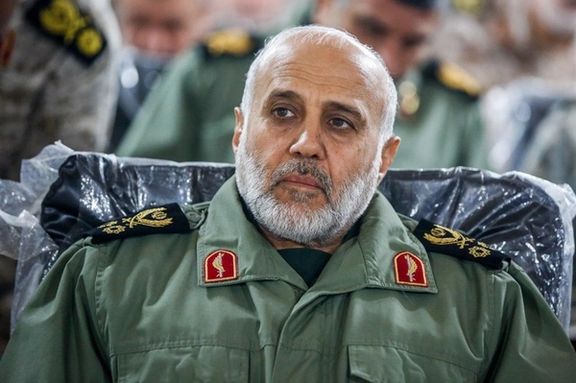
Major General Gholam Ali Rashid, commander of the Khatam al-Anbiya Central Headquarters, said on Wednesday that Iran "will not initiate any conflict in the region, following its defensive doctrine."
He added that the Armed Forces of Iran will conduct defensive and offensive military exercises in the coming days and weeks.
"These exercises aim to maintain readiness and demonstrate defensive and offensive capabilities to respond to any potential threat," he said.
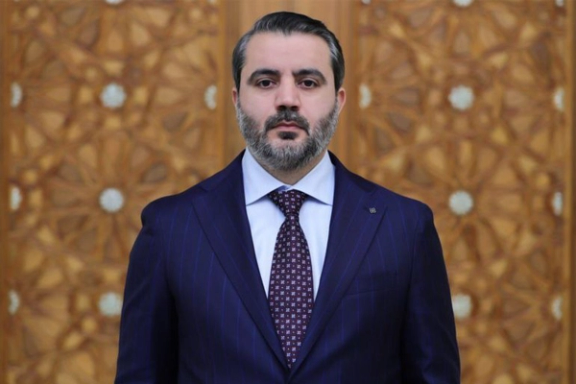
Syria's newly appointed foreign minister, Asaad Hassan al-Shibani, warned Iran on Tuesday against spreading chaos in Syria, a few days after Iran's Supreme Leader threw his weight behind another regime change in the Arab country.
"Iran must respect the will of the Syrian people and the sovereignty and safety of the country, and we warn them against spreading chaos in Syria and we also hold them responsible for the consequences of the recent statements," the Syrian minister said in a post on X.
His remarks came shortly after Iran's Supreme Leader Ali Khamenei openly opposed Syria's new government, spoke of the need to overthrow it, and announced plans to form a group to combat the Damascus administration.
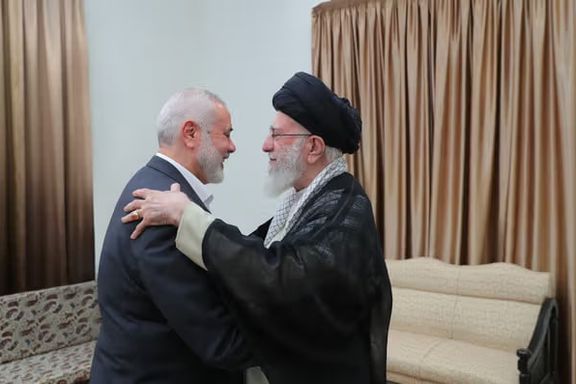
Iran's mission to the United Nations says the Israeli defense minister's admission to the Jewish state's killing of Hamas leader Ismail Haniyeh in Tehran legitimizes Iran's October 1 attack on Israel.
"This brazen act underscores Israel’s role in terrorism, legitimizes Iran’s response on 1 October 2024, and reaffirms the Zionist regime as a serious threat to global peace, which must be stopped," the Iranian mission said in a letter to the UN Secretary General and the US Ambassador to the UN, the rotating president of the Security Council.

A former Iranian official said Tehran could disrupt the Starlink satellite internet service if Elon Musk's SpaceX refuses to adhere to unspecified regulations, in another sign of official wariness of unfettered internet access for its citizens.
"SpaceX must comply with Iran's regulations, otherwise the Islamic Republic could disrupt its coverage," said Amir Mohammadzadeh Lajevardi, the former deputy minister for Information and Communication Technology.
Lajevardi, who is considered close to current thinking and decision-makers, made the remarks in an interview with the state television.
The remarks come after the Supreme Council of Cyberspace announced Iran would lift restrictions on some digital platforms like WhatsApp and Google Play while maintaining control on others.
Iranians who face some of the world's toughest internet restrictions have in recent months shared videos and photos of Starlink satellite internet terminals being installed on rooftops, raising expectations that this technology could soon render the government’s internet filtering efforts ineffective.
"In the two years since Washington green lit SpaceX’s satellite internet service," Forbes reported earlier this month, "an underground worldwide network of smuggling and advocacy has brought uncensored internet to thousands of people in the Islamic Republic."
The availability of Starlink is seen by many as a potential game-changer for bypassing state-imposed online restrictions, allowing greater access to unfiltered internet in Iran.
In October 2023, Iran's Ministry of Telecommunications demanded that SpaceX obtain licensing for Starlink operations and filed a complaint with the International Telecommunication Union (ITU) over unauthorized use in Iran, which resulted in a ruling in Iran's favor.
While over 60 countries have approved Starlink services, Iran is likely to demand access to user data—a request SpaceX would almost certainly reject.
The terminals typically cost around $500, depending on the model, with a monthly subscription fee of $110. However, in the Iranian market, prices are significantly higher, reaching up to three times the standard cost.
Those found using Starlink in Iran risk prosecution for possessing smuggled goods.
In November 2023, Iranian security forces confiscated 22 Starlink terminals, claiming they were CIA property intended for use by the office of dissident Sunni cleric Abdolhamid Esmail-Zehi.
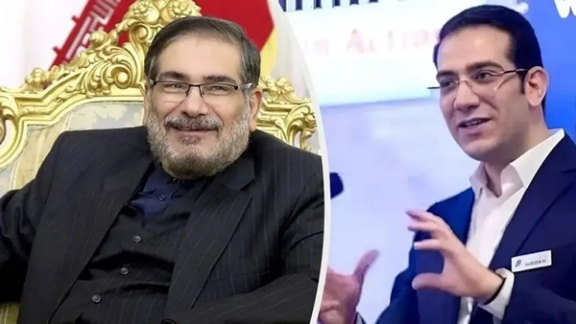
The son of a key figure in Iran's ruling establishment is at the heart of a sanctions-busting secret trade with Russia, in which Iran provides Moscow with weapons in exchange for oil, a report by Bloomberg said.
Hossein Shamkhani, son of ex-security chief Ali Shamkhani, oversees a network of companies central to facilitating weapons shipments across the Caspian Sea to Moscow amid its ongoing war in Ukraine, the report said.
Through his Dubai-based company Crios Shipping LLC, the younger Shamkhani began moving missiles, drone components, and dual-use goods last year, relying on at least two ships.
The Bloomberg report cited information provided by more than a dozen unnamed US, UK, and European officials, along with others familiar with the transactions.
These shipments, according to sources cited by Bloomberg, are part of a barter arrangement in which Moscow pays Tehran with oil cargoes in order to bypass sanctions restricting both nations’ access to international financial systems.
“My understanding is the Shamkhani network ties into the drone contracts for use in Ukraine,” said John Bolton, former US National Security Advisor, now a senior fellow at the Foundation for American Security and Freedom.
Shamkhani’s trading prowess highlights Iran's broader use of a vast network of companies spanning commodities trading and hedge funds.
A family legacy of influence and controversy
Hossein Shamkhani’s ascent in global commerce and politics is intertwined with his father Ali Shamkhani’s legacy. As a long-serving Iranian defense minister and national security advisor, Ali Shamkhani has remained close to Supreme Leader Ali Khamenei, leveraging his influence even after stepping down from the Supreme National Security Council in 2023.
The Shamkhani family has faced repeated allegations of corruption and abuse of power. Iran International’s investigative journalist Mojtaba Pourmohsen has reported extensively on family members’ involvement in high-profile scandals, including accusations of illicit business dealings, ownership of extravagant properties and bank accounts abroad.
One particularly contentious episode involved their role in the collapse of a building in Khuzestan province in 2022, a tragedy that left dozens dead. The building’s owner, a businessman linked to the family, was found to have violated multiple construction regulations.
Hossein Shamkhani has denied any wrongdoing and rejected claims of involvement in illegal arms shipments or sanction-busting oil trades.
A lawyer representing him told Bloomberg that the allegations are baseless and lack supporting evidence. Similarly, Mohamed Al Hashmi, managing director of Dubai-based Milavous Group Ltd—another firm tied to Shamkhani—dismissed allegations of involvement in Iranian or Russian oil trading.
Complexities of sanctions and enforcement
The cross-Caspian shipments highlight challenges in enforcing Western sanctions. Ships linked to Shamkhani’s network, including the Sea Castle and Sea Anchor, have completed multiple trips between Iranian ports and Russia’s Astrakhan in the past year.
These vessels, though modest in size by global shipping standards, are believed to have been sufficient for transporting weaponry on the short Caspian routes.
Bloomberg’s analysis of ship tracking data suggests these voyages accelerated in 2023, coinciding with Russia’s increased reliance on Iranian arms for its operations in Ukraine.
Shamkhani’s maritime network extends beyond these two vessels. Bloomberg cited sources describing an extensive fleet of tankers and cargo ships controlled through entities such as Oceanlink Maritime DMCC and Koban Shipping LLC.
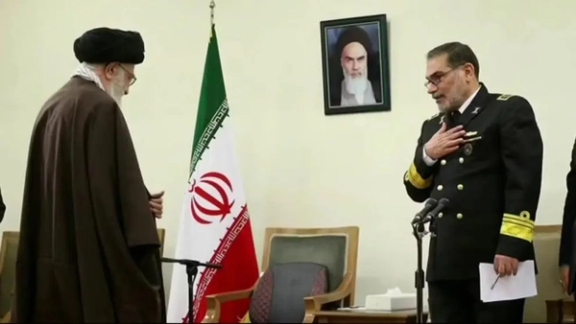
While the US Treasury has sanctioned several of these ships and their associated companies, enforcement has been complicated by frequent changes in ownership and the lack of direct links to Shamkhani in official records.
“Sanctions enforcement against these barter networks is a lot harder, particularly when you consider Russia’s historic dominance in the region,” said Behnam Ben Taleblu, a senior fellow at the Foundation for Defense of Democracies.
He emphasized the importance of transparency and international cooperation to expose these networks and curb their activities.
Expanding business empire and diplomatic implications
Beyond shipping, Shamkhani’s network includes a hedge fund operating in financial hubs such as London, Geneva, and Singapore, and a Dubai-based commodities trading firm dealing with Western oil companies.
Despite these connections, he has not been personally sanctioned by the US or European governments. This lack of direct penalties has fueled concerns about loopholes in current sanctions regimes, particularly as entities within Shamkhani’s network continue to conduct significant business with Chinese buyers using yuan transactions, avoiding the US financial system.
Both Iran and Russia have acknowledged their growing military cooperation without detailing specific arms deals.
While their collaboration appears not to inherently violate international law, it exposes participants to potential sanctions.
A State Department spokesperson warned of the broader security implications, saying, “This partnership threatens European security and illustrates how Iran’s destabilizing influence reaches beyond the Middle East and around the world.”
The allegations against Hossein Shamkhani, if substantiated, underscore the resilience of global sanctions evasion networks and the complexities of monitoring illicit trade.
With limited transparency and persistent geopolitical rivalries, success in curtailing Iran's sanctioned trade has eluded the West and its allies.